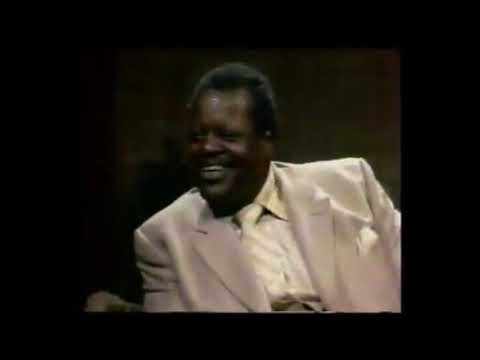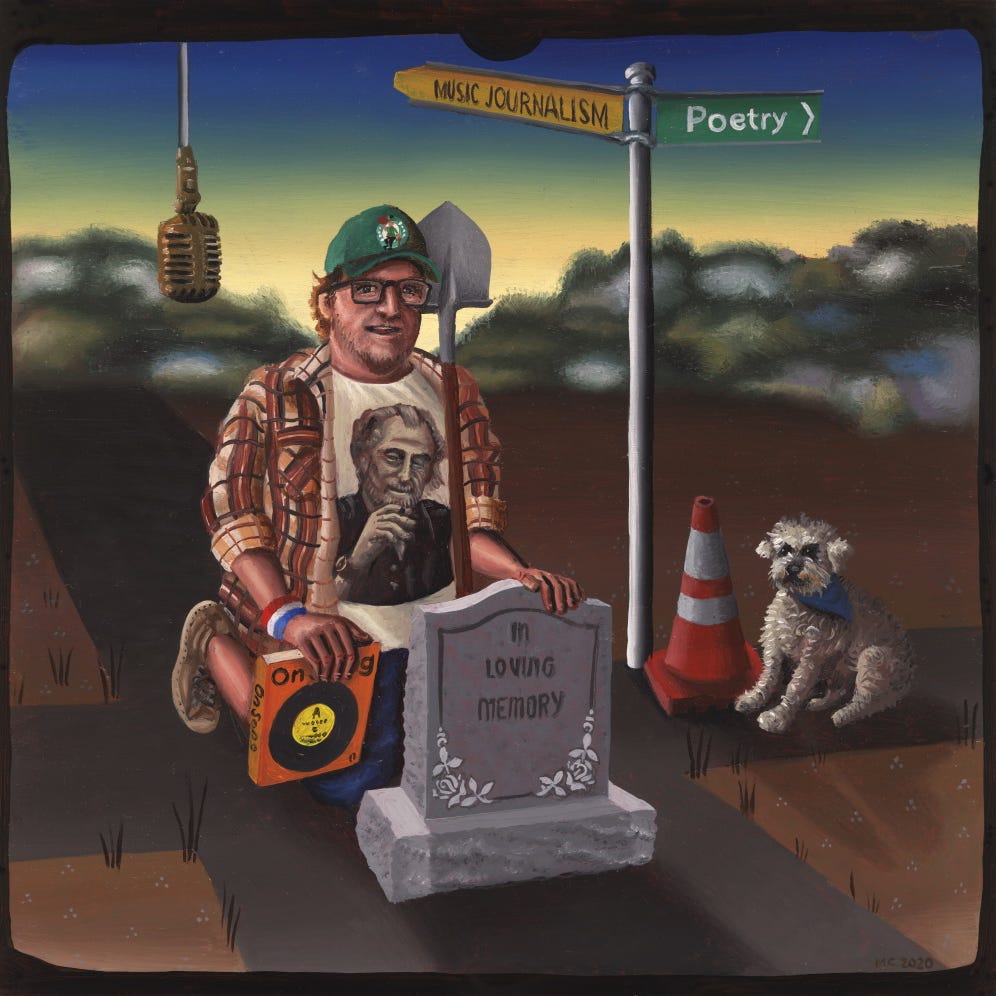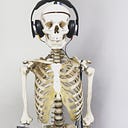The Wonderful Oscar Peterson
Friday is great, because it's all about music - playlists and YouTubes galore. Today, jazz. Oscar Peterson in fact. Wonderful interview, great music. He was one of the best and a favourite of mine.
Check out this interview from 1979 where Dick Cavett is talking to the jazz great, Oscar Peterson. It’s an amazing format, Peterson first plays a tune, then heads over to speak with Cavett — the two then return to the piano and the interviewer asks his subject to improvise in the style of various other players. There’s such a warmth between them. Cavett’s knowledge of jazz and music coming from his producers and a little from his own interest too, of course. Even if he somewhat downplays that. But it’s a daytime TV show, so he’s presenting from the point of view of an everyman, and that was his great gift: He could talk to anyone about anything — and he made it interesting, and warm. He kept it real. But he did some work to show that he’d been listening. He was expert at dropping the insightful question/comment into the mix.
I’ve been watching a lot of Rick Beato clips lately. He’s a music-producer turned YouTuber. He interviews many of the greats, and always from the point of view of a fan (and a musician). He also does lists, and song breakdowns on his YouTube channel. I’ve shared a few clips from it recently, and I’ll likely share more. I have become a huge fan of what he does. And the way he does it. Here (above) he even provides a handy breakdown of the Peterson/Cavett video. His commentary is useful, and it’s a shorter clip, so if you watched the whole Peterson video already, and maybe even wondered what the fuss was, the Beato clip isn’t the whole thing all over again, it’s just the final segment of the interview, with Beato pointing out a few things along the way.
He’s talking — reallly — about the lost art of the interview. From both subject and interviewer. We get it right sometimes (those of us that have been on either side of an interview). And also, we can get it wrong — the whole thing about the interview is it relies not only on research and connection, or the hope for both heading in the right direction, it also relies on whether both the interviewee and the interviewer are having a good day.
You get super lucky if you get a great raconteur, not all interview subjects enjoy the process, not all interviewers can be as equally skilled across every type of interview they might have to do.
Anyway, I loved watching this Oscar Peterson clip — and watching it twice (the original footage, and the Beato commentary).
I first heard Oscar Peterson when I was about 12 years old. My mum played me a Peterson record. Because her dad had played her an Oscar Peterson record when she was about 11 or 12.
Peterson is one of the absolute greats. And if you want an entry into piano-based jazz then he could so be your man.
My favourite album by Oscar Peterson, is a well-known one, and it’s often on longer lists of the best and most played jazz albums. It’s called Night Train. I own it on vinyl, and CD. And when I was a teen I had it on cassette tape. I used to read Modern Drummer religiously. Meaning, I’d attend the opening of a new issue of the magazine every month, instead of going to church. And it was in the pages of Modern Drummer that I learned about Ed Thigpen. One of the masters of jazz brush-playing, and long-serving drummer in The Oscar Peterson Trio. Well, there were a few line-ups called The Oscar Peterson Trio, but the classic version was with Thigpen on the drums and Ray Brown on bass. That’s the band on Night Train. And wow, is that an album!
Some snob might tell you there’s a cooler record, since this was filled with commercial hits for Peterson, but to me it’s a flawless recording. And I listen to it for Thigpen’s playing entirely. Then I go back and listen to it again for Oscar. I’m also listening to what Ray Brown does too of course, but I guess what I’m trying to say is the drumming on this album is enough to keep my ear tuned to it.
We named our son Oscar. And though it’s far more likely that Oscar Wilde and Oscar The Grouch were better examples of the sorts of namesakes and role models we had in mind — and in indeed our son is, most days, somewhere right between Oscars Wilde and The Grouch with his witticisms and frustrations arriving in near equal measure — it’s also true that once we had decided on the name I was quick to mention how much I loved Oscar Peterson.
The day before Oscar was born I sat and listened to Night Train. I almost wept. I bloody well did, the next night. Mum and bub in the hospital, and me exhaused and elated and home alone later that night. I played Peter Gabriel’s Solsbury Hill and Don’t Give Up. I listened to The Beach Boys’ SMiLe Sessions (Surf’s Up, Child Is Father of the Man) and then I listened to Night Train again.
I also dug out We Get Requests which is from a similar era, with the same band, and is probably my next-favourite Oscar Peterson record; certainly my next most played.
Being so obsessed with drums and drumming, I also love finding records that do not feature percussion at all. So I’m also a fan of a different configuration of The Oscar Peterson Trio, the drummer-less one, showcased on The Trio, which features legendary bassist Niels-Henning Ørsted Pedersen, and the sublime guitarist Joe Pass. There were other drummer-less trios led by Peterson, and it’s a popular format, particulary this instrumentation, and so The Trio album is a useful one to check out. I sold my vinyl copy, and some days I regret that. But hey, you can’t own everything.
I sometimes think Oscar Peterson contained the whole world in his hands. And there’s no better proof than when you hear him solo.
He could play in almost all styles, classically trained, he was adept across bop and the blues, he could play boogie woogie and stride, he was exquisite in the way he served up balladry. He was a composer, and an improviser. He had a great knack for the right tune to play — didn’t have to be the one he’d written. He had an enormous repertoire. And he collaborated widely. For these reasons, and for his tremendous skill, he remains a great gateway for jazz exploration.
Whenever my mum comes to visit these days, or if I’m up seeing my folks, I play an Oscar Peterson record. And she always reminds me that she found out about Oscar Peterson through her dad, the jazz fan. My grandfather was always interested in the music I was playing. I’d sit there with my red Sony Walkman and it could be Jimi Hendrix or Van Halen, Stevie Ray Vaughan or Santana and he would want to know. But he was most pleased when it was Django Reinhardt, Buddy Rich, or Glenn Miller.
And sometimes, just sometimes, it was Oscar Peterson.
The greatest thing about music — and particularly now in this era with supreme access — is how easily you can remind yourself of something.
I’m there watching Rick Beato. Next thing I’m down this full wormwhole of finding full concerts of Oscar Peterson. Stacking up listening options for days to come.
This concert is wonderful. Yet another version of The Trio.
Well, anyway, that’s it for today. There’s no big ending. This one just fades out. Oscar Peterson is the recommendation. I’ve been listening to him for over 30 years now. And he got me to go back and hear Art Tatum and many others. I also listen for his sound and touch in anyone worth their salt playing jazz. I don’t always hear it. But I always smile when I do.
Now, there is some jazz on today’s playlist, but it’s not all jazz, it’s all sorts…so I hope you like it. This is Vol. 165 of A Little Something For The Weekend…Sounds Good!






Beato is always good on jazz. He has a muso’s taste in rock though which I get a bit sick of.
Love those two albums as well - the master